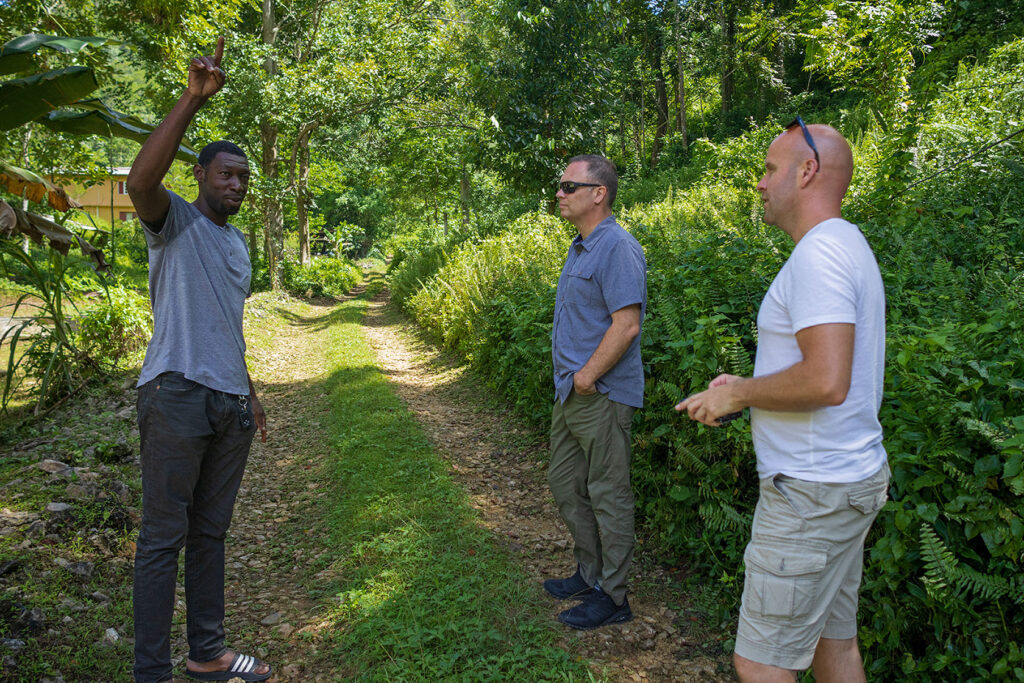Marriage, which lasts the rest of your life, requires a strength, grit, endurance and a special kind of love. Likewise, balancing ministry and marriage requires an ever-increasing spiritual and emotional fortitude. No one enters marriage or ministry with all the strength and equipping they need to endure.
One of the most valuable skills my wife Martha and I have learned in attempting to achieve balance in marriage and ministry is the ability to handle hardship with mental and physical toughness.
Proverbs 31 says this about a good wife:
“She rises while it is yet night and provides food for her household and portions for her maidens. She considers a field and buys it; with the fruit of her hands she plants a vineyard. She dresses herself with strength and makes her arms strong.” (Prov. 31:15-17)
Proverbs 31 describes a biblically “wise” wife. There are multitudes of principles that we could pull from the passage, but the principle that has been so helpful in our marriage are the attributes of toughness and strength.
In English we see the words “strength” and “strong,” which share the same root word. But in Hebrew, there are two distinct words—בְע֣וֹז and וַ֝תְּאַמֵּ֗ץ. The woman is dressing herself in physical, emotional, and mental power, or might (as opposed to being weak or fragile). She is powerful. The idea here is that the task before her will yield before her might.
At the same time, she is making her arms hard, brave, or fearless (as opposed to timid and soft). Literally, her “arms are fearless.” This speaks of an emotional and mental strength. She is a fearlessly strong and powerful woman.
My wife’s toughness has been a blessing for our marriage and ministry. She has a mental, emotional and physical resilience that has made me a stronger man. Some may describe it simply as “a good work ethic,” but her strength runs deeper than that; it is a spiritual strength of character. It flows from her desire to be God’s kind of woman.
Marriages that seek to build spiritual fortitude should recognize first and foremost that mental and spiritual fortitude—raw strength of will, grit, and industriousness—are character traits worthy of cultivation.
How?
1. Pursue the Lord through the spiritual disciplines.
“Fear not, for I am with you; be not dismayed, for I am your God; I will strengthen you, I will help you, I will uphold you with my righteous right hand.” (Isa. 41:10)
We who are called to full-time ministry are often prone to forget that God exists, that he helps us, and that he is our strength.
We are also prone to forget that we forget.
This is the value of spiritual disciplines—they remind us that we forget God, and they remind us of what to remember: God is present, he loves us, he has called us, and he will help us through suffering.
Spiritual disciplines in and of themselves profit little. Downloading the latest meditation app won’t solve our deep, daily spiritual need for Christ. But to the degree that a married couple pursues spiritual disciplines such as reading Scripture together as a couple, prayer with your spouse, and faithful serving together in the local church, God blesses these efforts with the grace of increased spiritual fortitude.
Solitude, prayer, Bible study, worship, fasting, and exercise are valuable tools to strengthen your relationship with the Lord who will strengthen you. God gave us these disciplines to draw us closer to him each day in order to strengthen you and your marriage.
2. Practice suffering well
I wish there was another way to build spiritual fortitude in one’s marriage other than enduring hardship. But this is an unavoidable path every couple must walk down in order to experience spiritual strengthening.
And in ministry, there is no shortage of suffering.
There is no inherent value in suffering. Enduring pain in itself does not result in any spiritual merit badges. But faithfully-endured suffering is one of the strongest means to building spiritual fortitude that a married couple can utilize. The Apostle Paul instructs Timothy: “Share in suffering as a good soldier of Christ Jesus. No soldier gets entangled in civilian pursuits, since his aim is to please the one who enlisted him” (2 Tim. 2:3-4).
The best way to build fortitude in your marriage is to fight, scrape, and claw your way through your difficult issues today, because the problems you solve today strengthen you for the problems tomorrow. God is with you in the midst of those problems, and it’s important to keep in mind his purposes in the midst of hardship.
3. Don’t hide information to “protect” the other
The circumstances that God brings into our lives are for our good and his glory. Suffering isn’t just bad. Difficult providences aren’t just dangers from which to seek protection; rather, sharing in suffering is glory: “For this light momentary affliction is preparing for us an eternal weight of glory beyond all comparison” (2 Cor. 4:17).
Do not keep negative ministry-related or personal information from your spouse in order to “protect” him or her. It is tempting to try to walk the path of life alone in order to spare your spouse from pain or hardship, but the purpose of marriage is to partner together in the project of life.
Marriage isn’t just about making the other person feel better—it is about building something. And that “something” is a mutual project of husband and wife to the glory of God. Don’t withhold from your spouse the opportunity to sacrifice for, pray for, and participate in the hardships to which God has called you both as a couple.
In sharing yourself with your spouse—even the ugly parts—you are sharing with your spouse the opportunity to do God-glorifying, kingdom work. By honestly walking through hardships with your spouse, you are allowing them the full opportunity to participate with you in the vocation to which he has called you both.
4. Cultivate physical strength and self-control
I used to think that exercise was just about being healthy. I don’t believe that anymore.
Exercise is a way to train one’s mind to respond to bodily impulses in a godly way. Exercise is how you learn to say “yes” and “no” to your body. And you will see a major payoff from cultivating this skill in your marriage.
Gluttony, drunkenness, slothfulness, lust, and anger—all of these sins are the fruit of not saying “no” to your body. This is critical, because if you cannot say “no” to your body, you will lose your marriage.
Paul writes to Timothy: “for God gave us a spirit not of fear but of power and love and self-control” (2 Tim. 1:7).
He also writes to the Corinthians:
“Do you not know that in a race all the runners run, but only one receives the prize? So run that you may obtain it. Every athlete exercises self-control in all things. They do it to receive a perishable wreath, but we an imperishable. So I do not run aimlessly; I do not box as one beating the air. But I discipline my body and keep it under control, lest after preaching to others I myself should be disqualified.” (1 Cor. 9:24-27)
Physical and spiritual virtues and vices both grow in the soil of improper responses to bodily impulses. Mental fortitude is forged in the arena of physical self control, because of how we respond to bodily impulses.
Conclusion
Value mental fortitude. Pursue it. Make it a defining characteristic of your marriage. But also realize that this doesn’t mean your marriage has to be a constant war against the flesh.
Mental and physical discipline makes space in your ministry to more easily relax, rest, and have fun as all married couples should. The more fortitude you have, the more time and energy you will have to be able to enjoy your spouse to the glory of God.
Pursue the Lord through spiritual disciplines so that he will honor your investment with wisdom and strength. Practice suffering well so that you can share in the sufferings of Christ and learn to persevere to the glory of God as Christ did. Don’t hide information to “protect” your spouse so that you can face obstacles as a team and learn to draw upon one another in moments of insufficiency. Cultivate physical strength and self-control so that you know how to say “No” to bodily impulses that produce lust, gluttony, and anger, and say “Yes” to kingdom-building sacrifice.
Use these four strategies as marital tools to build a marriage that goes the distance to the glory of God. Your older selves will look back in gratitude to God that he gave you the grace to take the steps to become a mentally tough couple today.
Editor’s Note: This article was originally published on October 9, 2019




